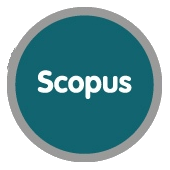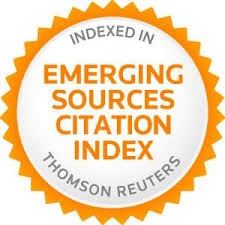Pensamiento reflexivo e investigador en Educación. Aspectos a tener en cuenta en la formación del profesorado
Resumen
Formar al profesorado como profesionales reflexivos e investigadores debe ser una prioridad para un sistema educativo que busque la mejora de su alumnado en el manejo de información compleja y la resolución de problemas de forma creativa y divergente. El educador reflexivo, tal como es percibido por el profesorado español que participa en el estudio TALIS (OECD, 2014), ha sido distribuido en una escala o índice TRI que permite mostrar la frecuencia de participación en actividades formativas que facilitan un “Desarrollo profesional reflexivo” (DPR). La mitad de la muestra considera que su desarrollo profesional incluye actividades formativas ocasionales de carácter reflexivo. Se identifican, mediante análisis multinivel, los factores individuales y de centro asociados al perfil docente de educador reflexivo, que se corresponden con un atributo individual vinculado a una formación en red o de colaboración docente en torno a un centro con liderazgo pedagógico y control evaluativo. Esto supone para el docente una mayor dedicación e intensidad, una autopercepción de efectividad profesional y dominio sobre los procesos de enseñanza-aprendizaje que utiliza con su alumnado. El índice DPR se muestra consistente en la representación de un perfil docente que favorece la efectividad de los procesos de aula. Por la situación que presenta España en la estimación del índice DPR, consideramos de interés hacer evolucionar los modelos de formación inicial y continua del profesorado hacia un enfoque que potencie las capacidades reflexiva, investigadora y colaborativa de nuestro profesorado y estudiantes.
Palabras clave
Referencias
Anderson, R. D. (2002). Reforming Science Teaching: what research says about inquiry. Journal of Science Teacher Education, 13(1), 1-12 doi: http://dx.doi.org/10.1023/A:1015171124982
Cochran-Smith, M. & Lyttle, S. L. (2009). Inquiry as Stance: Practitioner Research in the Next Generation. New York: Teachers College Press.
Dana, N. F. & Yendol-Hoppey, D. (2009). The Reflective Educator’s Guide to Classroom Research: Learning to Teach and Teaching to Learn Through Practitioner Inquiry. Thousand Oaks, CA: Corwin.
Darling-Hammond, L. & Bransford, J. (Eds.) (2005). Preparing Teachers for a Changing World: What teachers should learnand be able to do. San Francisco, CA: Jossey-Bass.
Dewey, J. (1985 [1916]). Democracy and Education. Vol. 9 of John Dewey: The Middle Works, 1899-1924, edited by Jo Ann Boydston. Carbondale and Edwardsville, IL: Southern Illinois University Press
Etscheidt, S., Curran, Ch. M. & Sawyer, C. M. (2012). Promoting Reflection in Teacher Preparation Programs: a multilevel model. Teacher Education and Special Education, 35(1), 7-26. doi: http://doi.org/10.1177/0888406411420887
Freese, A. R. (2006). Reframing one’s teaching: Discovering our teacher selves through reflection and inquiry. Teaching and Teacher Education, 22, 100-119. doi: http://doi.org/10.1016/j.tate.2005.07.003
Hattie, J. (2003). Teachers Make a Difference: What is the Research Evidence? Comunicación presentada en el Australian Council for Educational Research Annual Conference on Building Teacher Quality, Melbourne. Consultado en: http://www.education.auckland.ac.nz/webdav/site/education/shared/hattie/docs/teachers-make-a-difference-ACER-%282003%29.pdf
Jay, J. & Johnson, K. (2002). Capturing complexity: A typology of reflective practice for teacher education. Teaching and Teacher Education, 18, 73-85. doi: http://doi.org10.1016/S0742-051X(01)00051-8
Kember, D., McKayb, J., Sinclairc, K. & KamYuet Wong, F. (2008). A four-category scheme for coding and assessing the level of reflection in written work. Assessment & Evaluation in Higher Education. 22(4), 369-37. doi: http://doi.org/10.1080/02602930701293355
Lee, I. (2008). Fostering preservice reflection through response journal. Teacher Education Quarterly, 35(1), 117-139. Consultado en http://www.jstor.org/stable/23479034
NCATE (2008). Professional standards for the accreditation of teacher preparation institutions. Washington, DC: National Council for Accreditation of Teacher Education. Consultado en http://www.ncate.org/documents/standards/NCATE%20Standards%202008.pdf
Newel, S. T. (1996). Practical inquiry: collaboration and reflection in teacher education reform, Teaching and Teacher Education, 12(6), 567–576. doi: https://doi.org/10.1016/S0742-051X(96)00001-7
Nie (2009). A Teacher Education Model for the 21st Century. Singapore: National Institute of Education.
OECD (2014). TALIS Results: An international perspective on teaching and learning. TALIS, OECD Publishing. Doi: http://doi.org/10.1787/97892641962261-en
Raudenbush, S. W. & Bryk, A. S. (2002). Hierarchical Linear Models: Applications and Data Analysis Methods. 2nd edition. Newbury Park, CA: Sage.
Schön, D. A. (1987). Educating the Reflective Practitioner. San Francisco, CA: Jossey-Bass.
Rust, F. O. (2007). Action research in early childhood contexts. En J. A. Hatch (ed.), Early Childhood Qualitative Research, 95–108. New York. Routledge
Scruggs, T. E. & Mastropieri, M. A. (1994). The construction of scientific knowledge by students with mid disabilities. Journal of Special Education, 28, 307-321. Doi: https://doi.org/10.1177/002246699402800306
Sparks-Langer, G. M. & Berstein, A. (1991). Synthesis of Research on Teachers´ Reflective Thinking. Educational Leadership, 48(6), 37-44.
Stremmel, A. J. (2007). The Value of Teacher Research. Nurturing Professional and Personal Growth through Inquiry. Voices of practitioners, 2(3), 1-9
Ward, J. & McCotter, S. (2004). Reflection as a visible outcome for preservice teachers. Teaching & Teacher Education, 20(3), 243-257. doi: http://doi.org/10.1016/j.tate.2004.02.004
Enlaces refback
- No hay ningún enlace refback.


